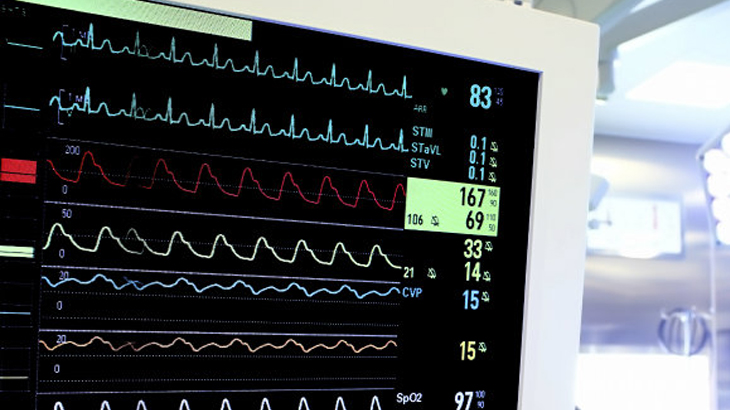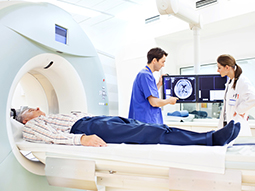
Many times, cardiac and vascular symptoms are misdiagnosed, or thought to point to other health conditions. When this happens, the disease progresses, putting patients at risk. It is critical to diagnose cardiac and vascular disease accurately to lead to the most effective and swiftest treatment.
Types of diagnostic tests like the following help your doctor identify any condition you may have and determine the best treatment plan and course of action for your particular situation:
Arteriogram
In this test, dye is injected into the arteries while X-rays are taken. The dye highlights the arteries, allowing the area of blockage to be accurately pinpointed.
Coronary Calcium Scanning
This test provides a measurement of arterial buildups (atherosclerosis) in the arteries of the heart.
Calcium scoring is a safe and simple test that takes only 15 minutes to complete and uses only a small amount of radiation (similar to the amount in two or three mammogram tests). Your doctor will receive a detailed report, including your calcium score and a comparison of your score to normal values, and will discuss the results with you.
Duplex Scan
A duplex scan is an ultrasound study used to assess blockages, narrowing, or other abnormalities in the abdominal vessels, the veins and arteries of the legs and arms, and the carotid arteries of the neck.
Electrophysiology Studies
An electrophysiology study, or EPS, is a diagnostic procedure to look more closely at the electrical function of your heart. It is the most accurate and reliable method of evaluating your heart rhythms and will help your physician determine the treatment option that is most appropriate for you.
Certain conditions can cause the electrical system to make the heart beat too slowly, too fast or in an uncoordinated manner. These irregular patterns are called arrhythmias and they can occur in any of the four chambers of the heart. An electrophysiology study will help your physician determine the best treatment for you by showing where the arrhythmias are occurring.
Loop Recording
Sometimes, a patient's arrhythmia may not show up while the ECG is being recorded. Your physician may suggest loop recording. A small recordable device is placed underneath the skin close to the heart and records the heart's rhythms during a period of time. The test results are sent to the cardiologist so he or she can analyze the patterns for cardiac arrhythmias.
Tilt Table Test
During this test, you will lie on a table that moves from side to side. Your blood pressure and pulse will be recorded as the table is tilted. This test will sometimes show an arrhythmia that contributes to the syncope.
Venous/Arterial Doppler
This sound-wave test measures blood pressure and blood flow in the arms and legs.
Our providers

Expert radiology care
Getting the care you need starts with seeing one of our radiologists.
Our locations
Distance from Change locationEnter your location
MedStar Franklin Square Medical Center
9000 Franklin Square Dr. Baltimore, MD 21237
Insurance
MedStar Health accepts most major health insurance plans. If you are uncertain as to whether your individual health insurance plan is accepted at MedStar Health, please call your insurance company.









